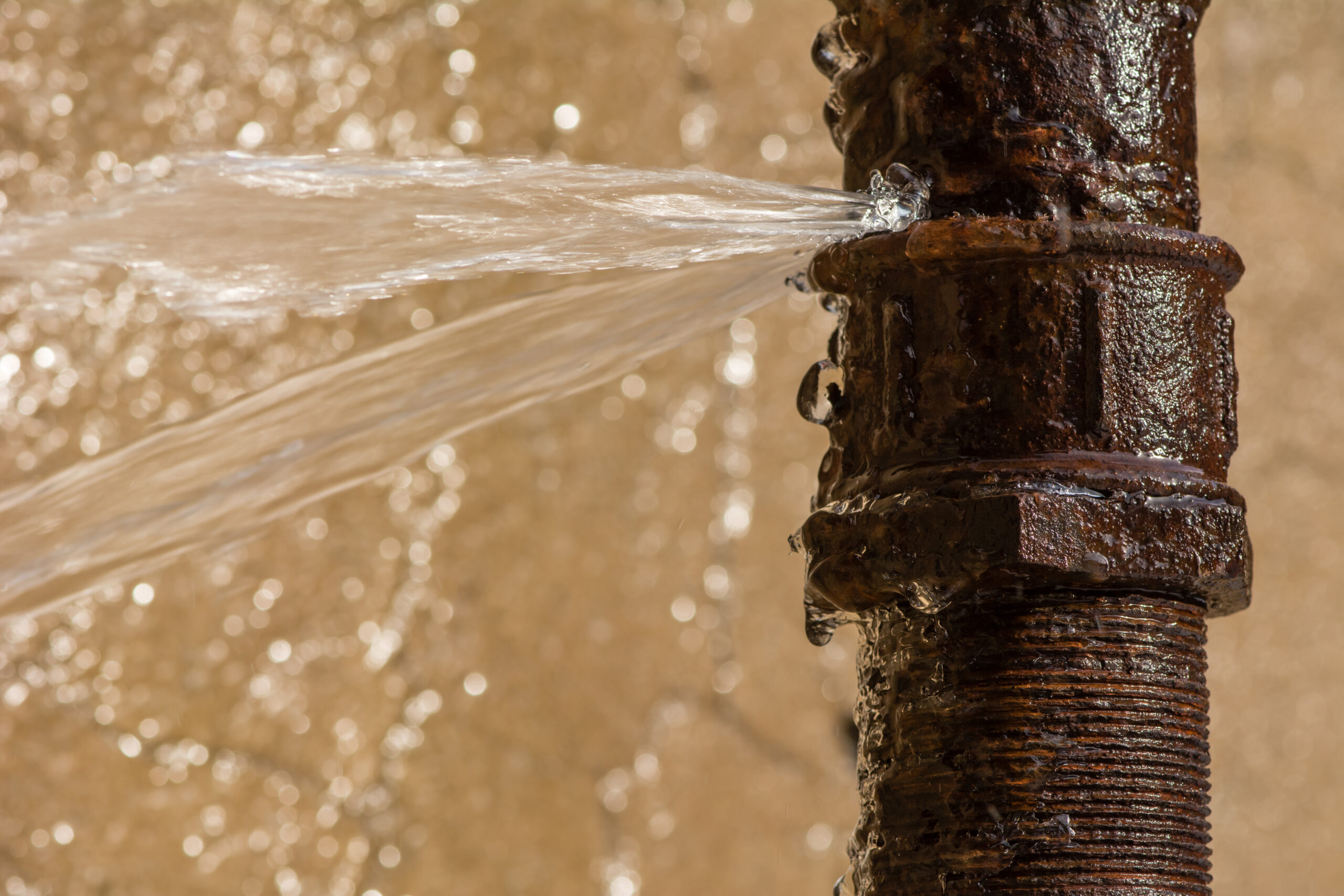There are few scarier thoughts for any homeowner than a sudden, unexplained fountain of water jetting up from their property. Of course, it needn’t be so dramatic; an unexplained loss of pressure or a surprise puddle or even a weird hissing sound. All of these are signs of water main breaks and need investigating as soon as possible.
Understanding Water Main Breaks
A water main is, as the name suggests, the main pipe supplying water to your property. They link your home to the municipal supply, carrying water at mains pressure into your home. Usually, they’re pretty robust but occasionally a water main will break and then you’re facing some serious issues.
Things like ground movement, tree roots or even sudden changes in temperature can cause water main breaks. Old and failing infrastructure is an increasingly common cause too. Sometimes things just get too old to cope and the pressure causes a rupture.
When it does inevitably happen, who’s job it is to get it fixed depends on where it’s gone. If it’s out on the street, your local water supplier will be responsible. If it’s crossed the boundary onto your property, chances are that you’ll have to deal with it.
Common signs of a water main break include:
- Sudden unexplained drops in water pressure
- Hissing sounds
- Unexplained puddles
If you experience any of these, there’s a good chance you’re dealing with a burst water main and you’ll need to take action.
Immediate Action
When you’re dealing with water escaping from broken water mains at full pressure, time is of the essence. As more and more water spills from the broken main, the risks increase exponentially. Given that these include damage to your home, possessions and could even present a risk to life, decisive action is needed.
You’ll want to start working through this list as quickly as possible:
Locate and turn off the water supply
The main shut-off valve for your property is likely located either out on the street or just at your property line. Open it and turn the valve off. There are a few different designs in use, but they can all be switched off either by hand or by using a stick to turn the valve.
Some properties may share a valve with their neighbors. The usual etiquette is to tell them that you’re switching it off before you do so so they can make arrangements. In an emergency situation, it’s best to switch it off first and tell them second. You’ll probably have to laisse with them about what to do soon anyway.
Assess the situation
Now that you’ve stopped the flow of water, it’s time to assess the damage. It’s possible that some ground or sidewalk may have collapsed or that flooding has occurred. If the problem is close to your home, you’ll have to assess whether it’s safe to return. It’s possible that broken water mains will result in contaminated water entering your property, posing a serious health risk.
Be particularly aware of electrical hazards: water, electricity and people don’t mix. Keep clear of electrical wires and appliances. If safe to do so, turn off the power supply to the area to reduce any risk further.
If in any doubt whatsoever, remove yourself from the vicinity. Property can be repaired or replaced: you can’t.
Call A Plumber
Fixing a burst water main is not a job for a DIY enthusiast. Contacting a fully qualified, licensed plumber is absolutely vital and the quicker the better.
You should tell them:
- The location of the water main breaks
- How much water seems to have escaped
- The extent of any damage
- Any other relevant details they ask for
The more information they have, the better they’ll be able to advise you.
If the broken water main seems to fall under the purview of the municipal or private supplier, call them as quickly as possible. They’ll have to send a team of plumbers and engineers to the site as soon as they can to mitigate any damage.
Safety Precautions
When dealing with broken water mains, safety should be your primary concern. Large amounts of water will be escaping and that comes with certain serious hazards to contend with.
- Keep away from electrical hazards, such as appliances
- Be careful of slip and fall hazards
- Avoid potentially contaminated water.
Though it might be tempting to rush headlong into your property to save your precious items, they can all be replaced. If there’s any risk at all, err on the side of caution.
Mitigating Damage While Waiting for Help
If it’s safe to do so, there are actions you can take while you wait for help to arrive. Broken water mains can cause serious damage to property and possessions, so you’ll want to save what you can.
The first thing you’ll want to do is move your possessions out of harm’s way. Water main breaks can release a lot of water very quickly, so prioritize things you can move easily. Put things which are likely to be ruined by getting wet as high as possible. Stacking things on top of a table, bookcase or other wooden furniture could save them.
If it’s safe to do so, attempt to contain the water. Make use of buckets, towels and barriers to try and bail out or redirect the worst of the flow.
If there does seem to be a chance of serious flooding, remember to document the damage. Photos and notes taken as you survey the site will go a long way when dealing with insurance companies.
Repair Process
Once the plumber arrives, the repair process can begin.
The first thing that the plumber will do is assess and diagnose the suspected water main break. They may need to excavate the area to gain access, being careful to avoid any electrical cable or sewage pipes.
Once they have sight of the issue, they’ll make a decision as to whether a repair or replacement is the best call. Depending on the nature of the water main break you’re dealing with it may require a large section (and more excavations) to be replaced. Alternatively, it might be possible to patch or repair smaller breaks.
Finally, they’ll cover everything back up and life can go back to normal.
Repairing Water Damage
Unfortunately, when a water main breaks, it tends to do a lot of damage to any surrounding homes. Possessions which weren’t moved out of the way of any flood water, carpets, flooring, furniture and even drywall could need to be replaced.
The first thing to do in this situation is take a thorough inventory and assess the extent of the damage to your property. It may be necessary to call in a flood mitigation specialist in the case of extensive damage but the first priority should be drying things out.
Dehumidifiers, towels and buckets can all be employed- you want rid of as much water as possible as quickly as possible. Once the area is free from puddles, you can really assess the extent of the damage and contact your insurance company to discuss options.
Drying things out may be enough, but then again, it may not. Each situation is unique but there’s the potential that contamination and water damage will require serious renovations to remedy.
Preventing Future Water Main Breaks
As with any disaster, prevention is better than a cure. There are certain actions homeowners can take to reduce the risks of burst water mains on or near their property:
- Scheduling regular inspections and acting on any recommendations which they turn up.
- Replacing old pipes as they come to the end of their lifespan with modern materials.
- Keeping trees and their root systems under control.
It’s worth noting that this last point doesn’t necessarily mean cutting down or uprooting your favorite trees. You can trim root systems like branches to keep them away from pipework, keeping them alive while mitigating risks.
In the case of a burst water main on your property, it’s like that these actions will fall under your responsibility. If the problem is outside your boundary line, it’s probably the municipal supplier or local water company that’s on the hook for maintenance costs.
Whatever has caused the problem the key thing is to act quickly and call for help. While broken water mains present serious risks to property and even the health and safety of those around them, acting quickly can reduce the damage considerably.

